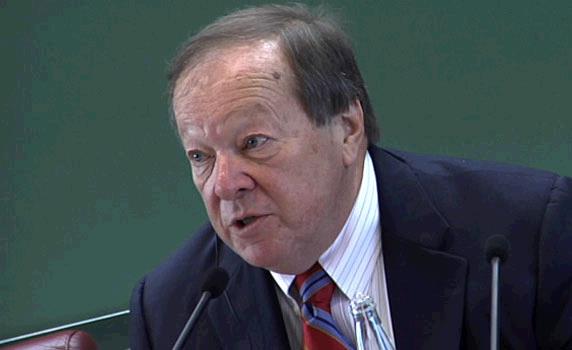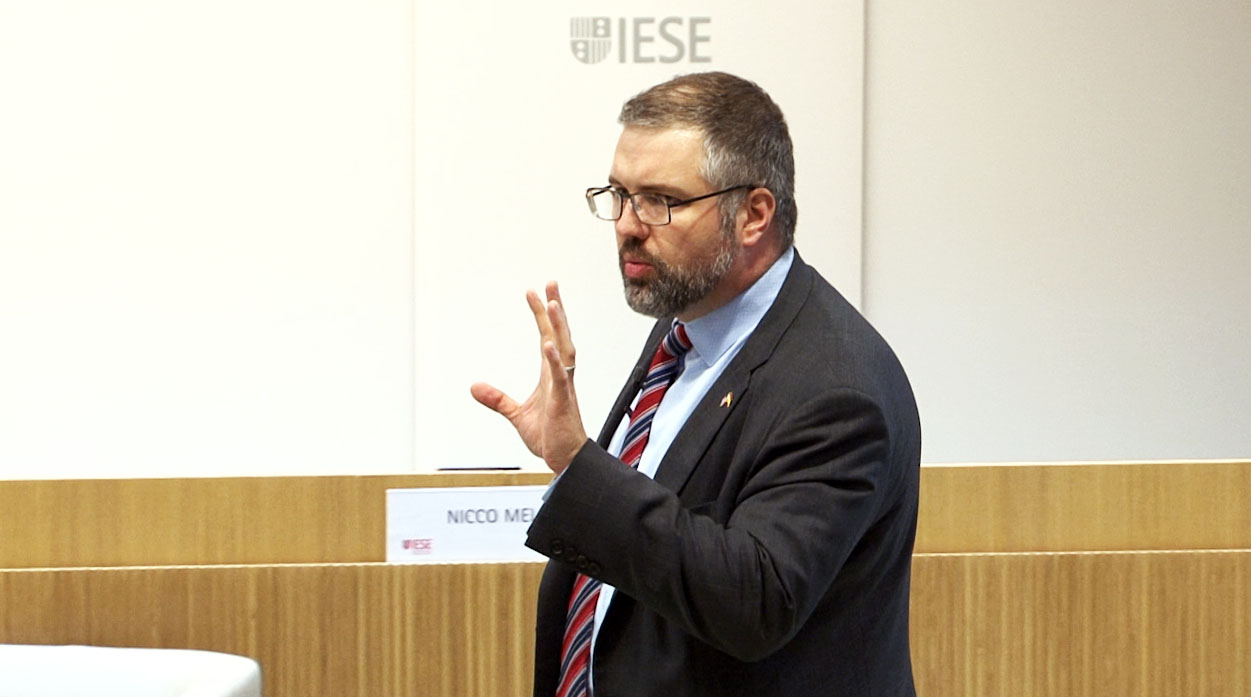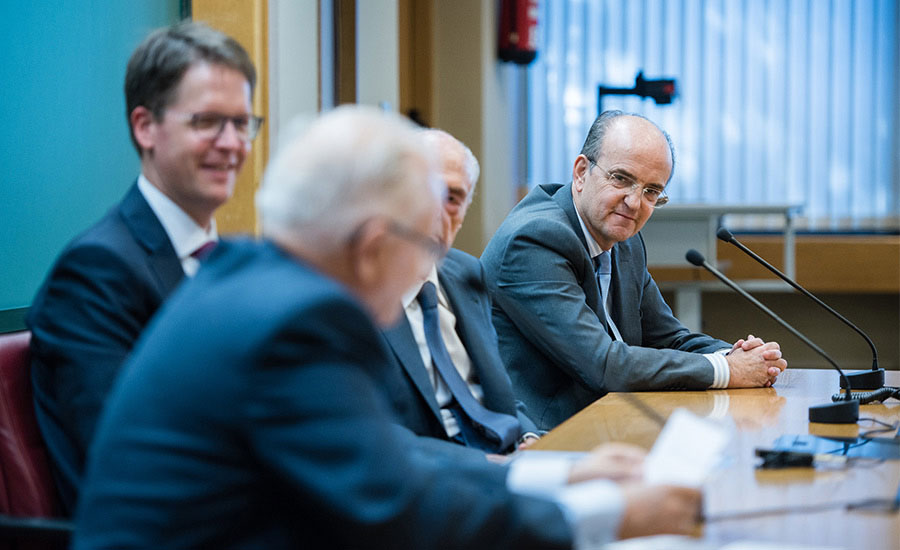Stories
The Importance of Lobbyists
Experts discuss U.S. and European advocacy systems
September 26, 2012

Differences in U.S. and European views toward lobbyists were in the spotlight at the Public Affairs Forum held at IESE Business School’s Madrid campus on Tuesday. Discussing their views were Wright H. Andrews, president of the American League of Lobbyists, and Carlo Casini, a member of the European Parliament and spokesperson for the EU Lobby Register.
The event was jointly organized by IESE’s José Felipe Bertrán Chair of Governance and Leadership in Public Administration and the communications consultancy Llorente & Cuenca.
The two experts described differences in the advocacy systems of the U.S. and the E.U. both emphasizing common misconceptions that people have about lobbyists and how public policy advocacy works in practice on the two continents.
The session was moderated by Pablo García-Manzano, Executive Director of the Center for Public Leadership and Government of IESE Business School.
Andrews blamed lobbyists themselves in part for creating a negative public image. “Lobbyists have done a terrible job explaining how it works,” he said, pointing out that in the U.S. they in fact number in the tens of thousands and represent the vast disparities and complexities of that society.
The work of lobbyists is part of a healthy democracy, he said. Yet due to harsh criticisms and the negative impression propagated by the media, some lobbyists label themselves political strategists.
“They don’t want a big L on their sweater,” he said.
Government officials understand the importance of lobbyists, he said, whereas citizens often forget that they are often represented by the groups they belong to and their lobbies: environmental groups, trade unions, churches, military groups, retirement associations and many more, said Andrews.
Lobbyists engage in many activities the public is unaware of including research, building relationships, developing strategies, finding an issue’s champions or assessing revenue impact, he said. “We are not sinister, we don’t spend all day on Capitol Hill.”
Andrews emphasized the value of personal relationships, knowing which members have time for or interest in an issue, and being bipartisan, aware of the opposing views and working with everyone.
Andrews admitted there are unprofessional lobbyists and others who grossly overcharge clients. And political contributions – which he said should be eradicated – give a sense of corruption to the general public, but unfortunately are a central strategy for many lobbyists.
He called for stronger regulation and transparency, noting that lobbyists are accountable to a code of ethics, a disclosure act, bribery laws, federal and local laws and other regulations.
Although the European system is significantly different, some of the techniques used by lobbyists in the U.S. could be used in the EU, such as motivating people through social media or spending more time with the members. “They may not be able to do as much, but hopefully they could have some influence on the parties,” he said.
In discussing the process in Europe, Carlo Casini said that lobbyists contribute to the common good.
“Someone who is advocating is defending rights,” he said. Given the EU’s 27 member states with its 21 languages, different philosophies, histories and thought-processes, parliamentary members need a significant amount of information to make decisions, he said, “but getting the information is a problem.”
By way of example, Casini said that in 1998, he was the speaker in charge of legal protection of technological inventions. He understood the legal aspects, but was not knowledgeable about the biotechnology issues and believes that advocacy groups would have helped. “With such information a politician can then make decisions,” he said, “aware of whether things are fair or not.”
Casini went on to discuss details of the EU Lobby Register, which was established for citizens to access information on who is engaged in activities to influence EU decisions. “In the EU, it is said that there is not enough democracy, there is not enough representation.”

